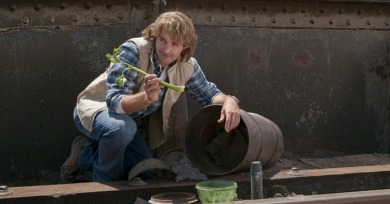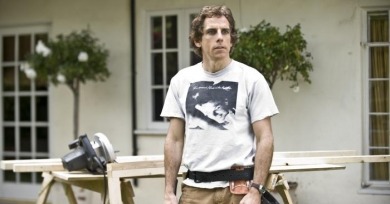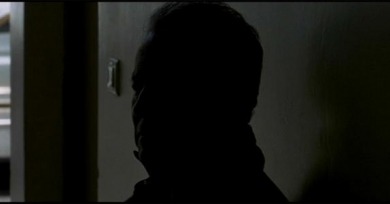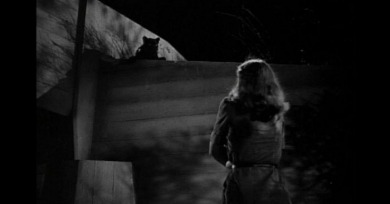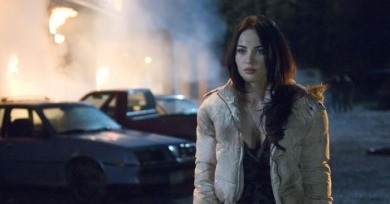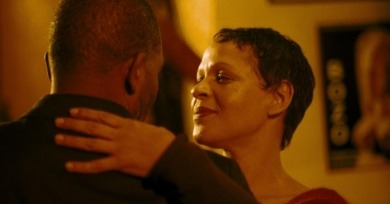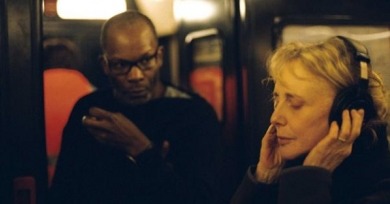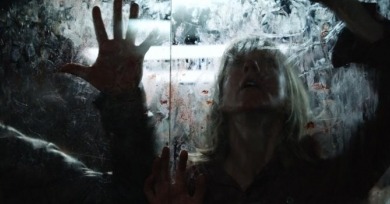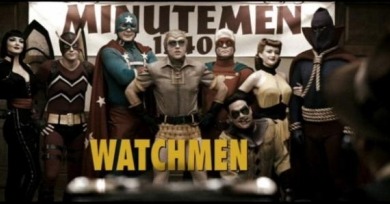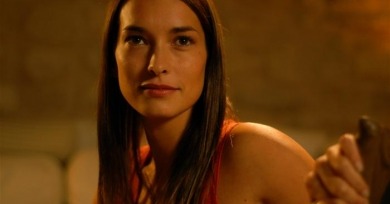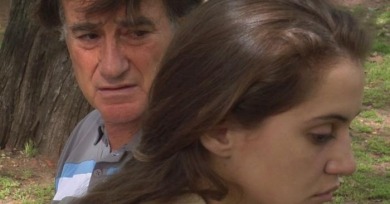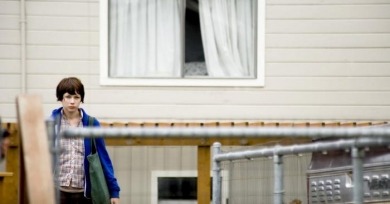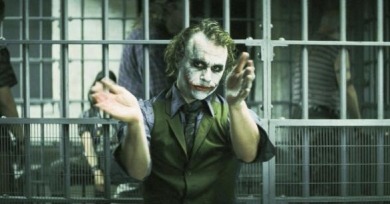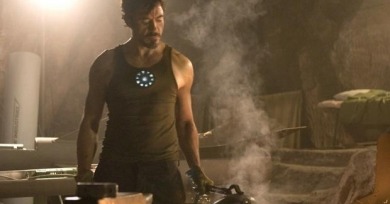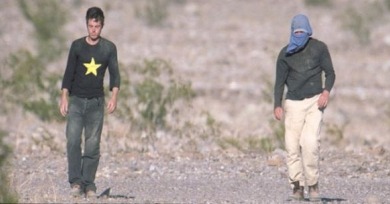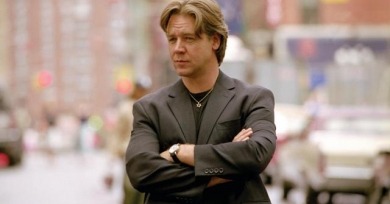Adam Nayman
On the one hand, the gag kids the conventions of MacGruber’s namesake and most explicit inspiration, MacGyver, whose hero was able to turn virtually any object or situation to his crime-fighting advantage (“Don’t thank me: thank the moon’s gravitational pull”). On the other, it’s simply an excuse for the star to make a literal ass of himself onscreen.
A lot has been written about Baumbach’s fondness for intricately arranged dysfunction, and there is something a little bit sadistic about creating two such painfully codependent pathologies and bouncing them off of each other at feature-length.
By the time Sarandon is burning eggs on the stove and sweeping dirt under the rug (ah, visual metaphors), all we can do is watch the onscreen pileup with mute, rubbernecking horror—which, to be fair, puts us in a position similar to that of the film’s not-quite-departed protagonist.
Denis’s uncanny ability to frame and follow the human form, which makes her one of the cinema’s great sensualists, is complemented by a tendency towards an oblique political critique.
A Few Great Pumpkins
The Leopard Man, Onibaba, Paranormal Activity, The Uninvited, La Cabina, Witchfinder General, Fantasia
The joke of Diablo Cody’s screenplay is that Fox’s anodyne Jennifer Check—a high school goddess who overcomes the obstacles of an ID-checking bartender by volunteering a game of “hello titty”—finds her inner ugliness externalized after being possessed by a demon.
About 70 minutes into You, the Living, we get what would seem to be a visualization of Zevon’s contention that “Except in dreams, you’re never really free.” What appears to be a static image of a newlywed couple in their apartment is revealed as an impossibly complicated traveling shot.
35 Shots of Rum is a modest enterprise. Its narrative—which borrows liberally (and undisguisedly) from Yasujuro Ozu’s Late Spring—is perfectly comprehensible on a first viewing. But it is not a retreat.
"I’m an anxious person. What I like best is to smoke cigarettes and listen to music. A perfect day for me is a day with coffee, cigarettes, and music, to quote Jim Jarmusch."
The premise is that Pontypool is the epicenter of a language-based psychosis that turns the afflicted (who turn out to be anybody within earshot of the infected) into dead-eyed shufflers whose mouths are stuck hopelessly on repeat—that is, when they’re not chowing down on fellow human beings.
In a word: “sure.” Watchmen may be a failed adaptation of a difficult text, but it isn’t a debacle like 300. Its mixed critical and commercial reception means that, unlike The Dark Knight, it isn’t begging to be brought down a peg.
I’ve seen three Brisseau films now and I’m still not convinced that his work reveals much more than a desire to provoke melded to a kinda-brave, kinda-foolish willingness to expose and exalt his own fetishes.
To say that Fendrik has borrowed this style from the Dardenne brothers is both to parrot the standard critical line on the film and also to tell the truth. And while handheld observational camerawork surely didn’t begin with La Promesse, the prevalence of this style in so much of what we might call “festival-circuit” cinema speaks to the brothers’ powerful aesthetic—and commercial—influence.
“You oughta see The Passion of the Christ,” says the burned-out fortysomething stripper to the fiftysomething broken-down professional wrestler, who agrees that maybe he should, noting that its subject “sounds like one tough dude.” Kinda sorta like him, right? Then she tells him that, with his long hair, he kinda sorta looks like Jesus himself.
As shot by Reichardt in a patient, fixed take, this makeshift breakfast has the distinct ring of a ritual. We get the sense that Wendy and Lucy have seen plenty of mornings like this one, grey and unwelcoming, attended by the giggly gawking of passing teenagers and the by-the-book hectoring of local cops.
Those critics who didn’t see fit to acclaim the film a masterpiece, or at least a genre high water mark, find themselves perched precariously above an angry horde calling for their heads (or worse), much like —SPOILER ALERT! —Batman at the end of The Dark Knight.
Still, clever and cogent beats idiotic and incoherent, and Iron Man is spryer than the overwhelming majority of films in its budget range. Favreau showed a talent for framing handmade special effects in the enjoyable Jumanji-in-space romp Zathura, and Iron Man’s best moments are similarly low-fi.
The “ors” have it in Gerry, which is a different kind of Rorschach test than the ones formulated by Benning. The onus is on us, as Van Sant’s own descriptions of the film aren’t particularly useful.
Expensively mounted without being overly glossy (credit here to grit maestro DP Harris Savides, on one hell of a run) and populated almost entirely by familiar faces, it pivots on a well-established postulation: the mobster (or pusherman) as late-capitalist avatar.
"There was so much to take care of as a director to make the film, and there are no sci-fi or visual effects film traditions in Korea. The Host is a small budget film in the Hollywood standard, but it is a big film in Korea."
